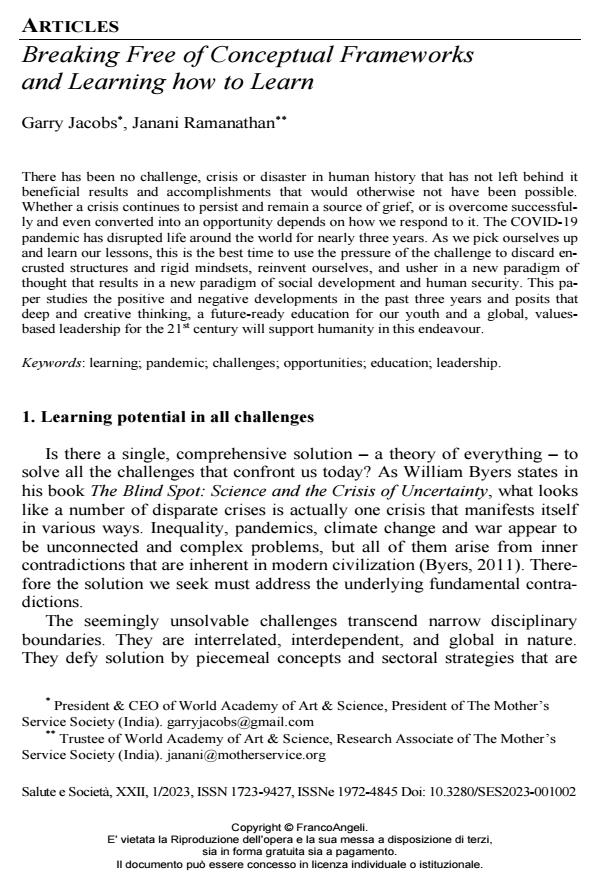Breaking Free of Conceptual Frameworks and Learning how to Learn
Titolo Rivista SALUTE E SOCIETÀ
Autori/Curatori Garry Jacobs, Janani Ramanathan
Anno di pubblicazione 2023 Fascicolo 2023/1
Lingua Inglese Numero pagine 14 P. 13-26 Dimensione file 385 KB
DOI 10.3280/SES2023-001002
Il DOI è il codice a barre della proprietà intellettuale: per saperne di più
clicca qui
Qui sotto puoi vedere in anteprima la prima pagina di questo articolo.
Se questo articolo ti interessa, lo puoi acquistare (e scaricare in formato pdf) seguendo le facili indicazioni per acquistare il download credit. Acquista Download Credits per scaricare questo Articolo in formato PDF

FrancoAngeli è membro della Publishers International Linking Association, Inc (PILA)associazione indipendente e non profit per facilitare (attraverso i servizi tecnologici implementati da CrossRef.org) l’accesso degli studiosi ai contenuti digitali nelle pubblicazioni professionali e scientifiche
There has been no challenge, crisis or disaster in human history that has not left behind it ben-eficial results and accomplishments that would otherwise not have been possible. Whether a crisis continues to persist and remain a source of grief, or is overcome successfully and even converted into an opportunity depends on how we respond to it. The COVID-19 pandemic has disrupted life around the world for nearly three years. As we pick ourselves up and learn our lessons, this is the best time to use the pressure of the challenge to discard encrusted struc-tures and rigid mindsets, reinvent ourselves, and usher in a new paradigm of thought that results in a new paradigm of social development and human security. This paper studies the pos-itive and negative developments in the past three years and posits that deep and creative thinking, a future-ready education for our youth and a global, values-based leadership for the 21st century will support humanity in this endeavour.
Parole chiave:learning; pandemic; challenges; opportunities; education; leadership.
Garry Jacobs, Janani Ramanathan, Breaking Free of Conceptual Frameworks and Learning how to Learn in "SALUTE E SOCIETÀ" 1/2023, pp 13-26, DOI: 10.3280/SES2023-001002